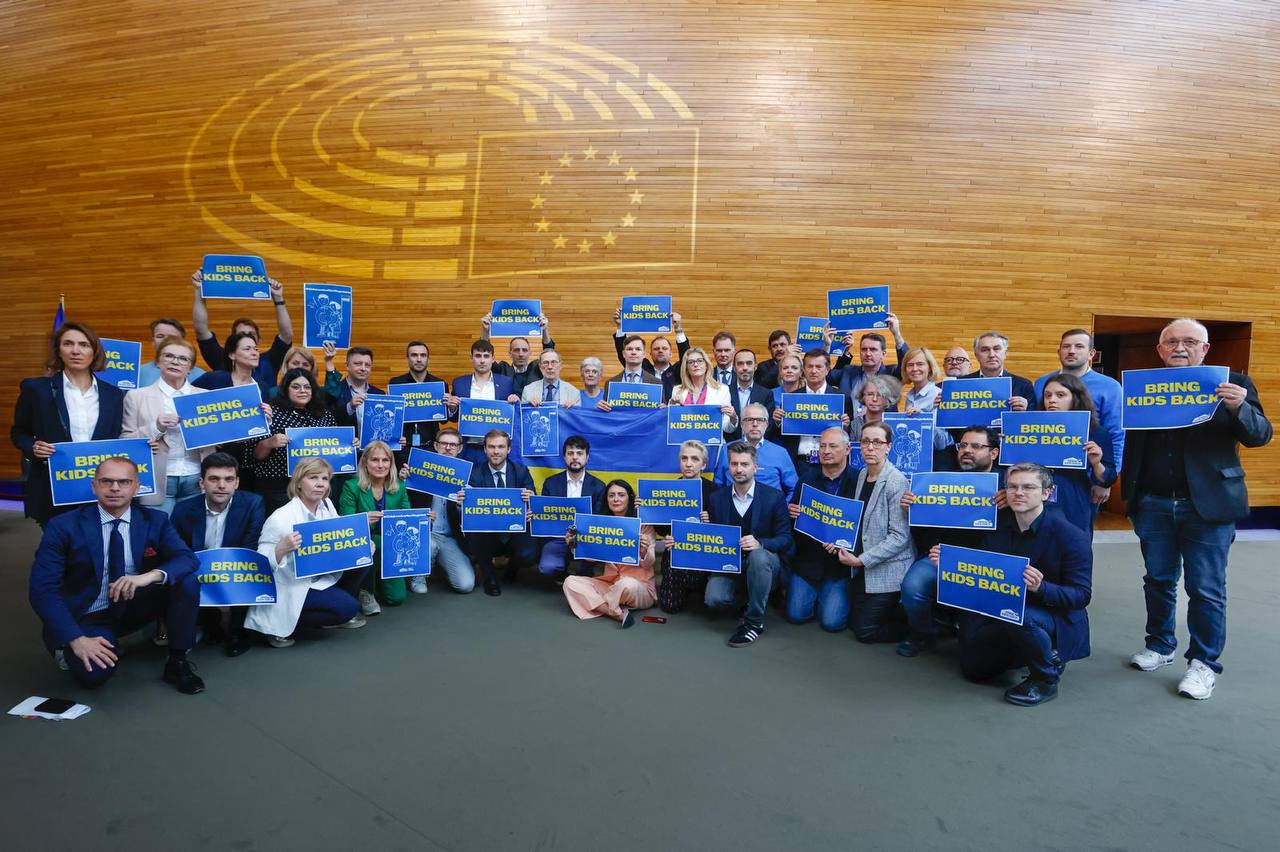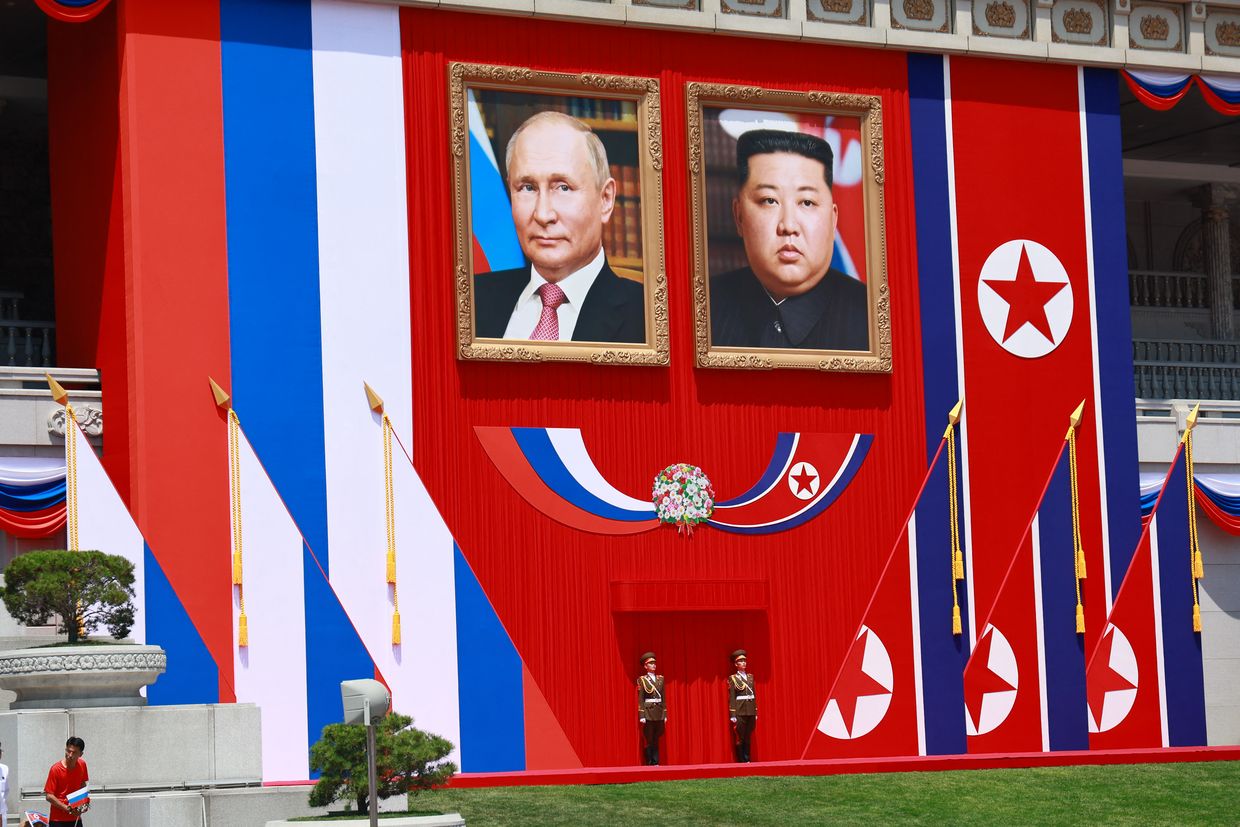Will Trump help Putin escape punishment for his crimes in Ukraine?

Russian President Vladimir Putin attends an Orthodox Easter service at the Christ the Savior Cathedral in Moscow, Russia, on April 20, 2025. (Contributor / Getty Images)
Under former President Joe Biden, the U.S. took the unprecedented step of deepening cooperation with international courts of law.
Washington has never been party to the Rome Statute, the treaty that established the International Criminal Court (ICC), and U.S. policy towards the Hague-based international tribunal has varied widely under different administrations.
Now, since President Donald Trump returned to office, that cooperation has stalled.
Among his first actions after returning to the Oval Office, Trump imposed sanctions on the ICC. Just over a month later, the U.S. withdrew from the International Center for the Prosecution of the Crime of Aggression against Ukraine (ICPA) and fired the coordinator responsible for collecting data on Russian war crimes.
Since nearly the start of Russia's full-scale invasion, Kyiv has been collecting evidence of Russian war crimes to bring their perpetrators, both ordinary Russian soldiers and those giving them orders, to justice. But the Ukrainian government cannot accomplish that without international support.
Washington's steady retreat from investigating Russian crimes is a poor omen for justice in Ukraine.
"This is a hazardous and bad signal that the (international legal) processes aimed at holding the perpetrators accountable may be deprioritized," Maksym Vishchyk, a legal advisor at Global Rights Compliance, told the Kyiv Independent.
Sharp turn in US policy
During more than three years of war, Russia has committed nearly 152,000 war crimes against Ukrainian citizens, according to the Prosecutor General’s Office of Ukraine.
Ukraine has identified more than 800 suspected perpetrators of these crimes. But one of the country's top priorities is to bring Russian President Vladimir Putin and his inner circle to justice.
The ICPA was founded in 2023 to speed up this process and collect evidence to be presented in a special tribunal aimed at prosecuting the Russian government for the crime of aggression against Ukraine.

It also aims to overcome another obstacle to prosecuting the Russian leadership. Under international law, the president, prime minister, and foreign minister of a country have immunity, meaning other states do not have the right to arrest or prosecute them. There is only one way to overcome this immunity: If the leaders have committed the most serious international crimes, they can be tried by a legitimate international tribunal.
This March, the Trump administration withdrew from the investigation team, citing its need to "redeploy resources" elsewhere.
In April, the Trump administration dismissed the coordinator of the War Crimes Accountability Team (WCAT). Created in 2022 by then-Attorney General Merrick Garland, this entity was supposed to coordinate the U.S. Justice Department's efforts to collect and share information about the Russian nationals responsible for atrocities in Ukraine.
The new U.S. president has not spared the ICC either. In February, Trump imposed sanctions on the court and Prosecutor Karim Khan after it issued an arrest warrant for Israeli Prime Minister Benjamin Netanyahu and former Defense Minister Yoav Gallant.
"Will it be enough for society if Putin is not held accountable for the aggression against Ukraine?"
Although Trump's order only mentions individual sanctions against Khan, this list may be expanded to include other ICC employees. Human rights activists also emphasize that this decision directly affects the court's operations, as it could lead to secondary sanctions against all foreign organizations and companies that cooperate with or provide services to the ICC.
Experts interviewed by the Kyiv Independent say Trump's recent moves put the global legal order at risk. But they also believe Ukraine will not feel any significant changes, for now, at least.
Vishchyk noted that the recent U.S. withdrawal from the ICPA, although a "big symbolic step backwards," will not technically affect the processes of investigating Russian crimes.
"Of course, the U.S., as a major strategic partner with significant intelligence capabilities, would be very useful for this center," he said. "But to suggest that removing the U.S. would jeopardize prospects for investigating and prosecuting criminal aggression is a big statement."
Kateryna Rashevska, legal advisor at the Regional Center for Human Rights in Kyiv, said that Trump's decision to distance the U.S. from the ICC was not unexpected. The U.S. has always been on the sidelines of this institution, and deeper intelligence sharing and cooperation with the court under the Biden administration was somewhat unprecedented. So was the U.S. decision to join the ICPA.
"They (the U.S.) have returned to their normal state of affairs," Rashevska told the Kyiv Independent. "The first task for them now is to get the parties to stop shooting and sit down to talk."

At the same time, Rashevska emphasized that the Trump administration's change of course, including its exit from the ICPA, could affect the future special tribunal for Russia, which has been in the works since 2022.
"The ICC has no jurisdiction to investigate the crime of aggression. Therefore, since the beginning of the full-scale invasion, there have been discussions that we need a special tribunal, because only it can lift personal immunity," Rashevska said.
"And if this does not happen, who will we judge?" she asked. "Will it be enough for society if Putin is not held accountable for the aggression against Ukraine?"
Will there ever be punishment?
International human rights organizations and Ukraine's allies have called for the arrest and prosecution of Russia's top officials since the scope of the country's war crimes in Ukraine became apparent.
But the goal remains elusive, at least in the near future.
In 2023, the ICC issued an arrest warrant for Putin and Maria Lvova-Belova, Russia's commissioner for children's rights, over their role in the abduction and deportation of Ukrainian children to Russia.
However, in September 2024, Putin visited Mongolia, which is a member of the ICC. The Mongolian government did not detain the Russian president, as required by the Rome Statute. The ICC later declared that Mongolia had failed to fulfill its international obligations under the statute, but it has, so far, not been penalized.
"The International Criminal Court is a powerful institution as a symbol," legal expert Vishchyk told the Kyiv Independent. "But it has big constraints, and we must be realistic about that. It will not punish everyone."
Rashevska of the Regional Center for Human Rights emphasizes that such failures are not unique. In January, the Italian government deported Osama Elmasry Njeem, the chief of the Libyan judicial police, back to Libya, despite an ICC warrant for his arrest.
No one can clearly predict when the perpetrators will be punished.
Almasri Njeem stands accused of overseeing killings, torture, and sexual assault in Tripoli's Mitiga prison.
According to Rashevska, such failures by member states are even worse for the ICC than sanctions from non-member states like the U.S.
"When you are a member state, you have made commitments and must fulfill them," she said.
Both experts emphasized that, despite such incidents, it is necessary to continue investigating Russian war crimes at the national level and work with international partners in order to achieve justice. Over 20 countries have now opened investigations into Russia's war crimes, according to the Office of the Prosecutor General.
But international justice can take years due to its complexity. No one can clearly predict when the perpetrators will be punished.
"Unlike general criminal offenses, the investigation of these crimes has to go through so many levels to at least reach the perpetrators in the chain of command," Vishchyk said. He notes that the perpetrators of the 1995 genocide in Srebrenica in Bosnia and Herzegovina were only convicted in the late 2010s.
Moreover, in Ukraine, investigators often do not have access to witnesses, victims, or evidence, as much of it is located in Russian-occupied areas. This also means that the number of crimes could be significantly higher than the figure recorded by Ukrainian law enforcement.
"We are moving at the pace we can at the national level," Vishchyk said. "We are now advising prosecutors to aggregate proceedings, prioritize them, and move on to cases involving (Russian) commanders. This is what Ukraine can do now."












